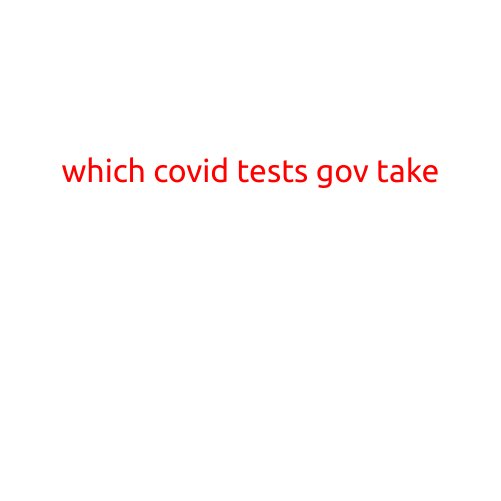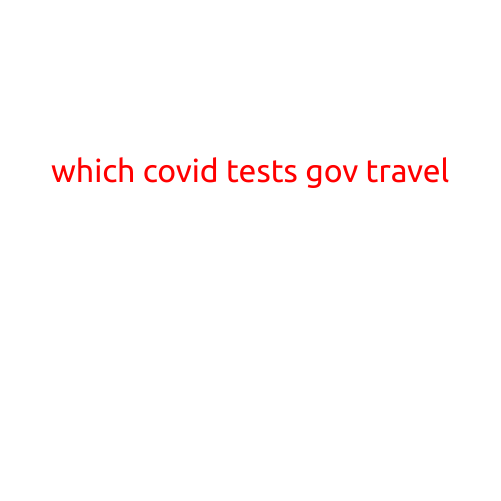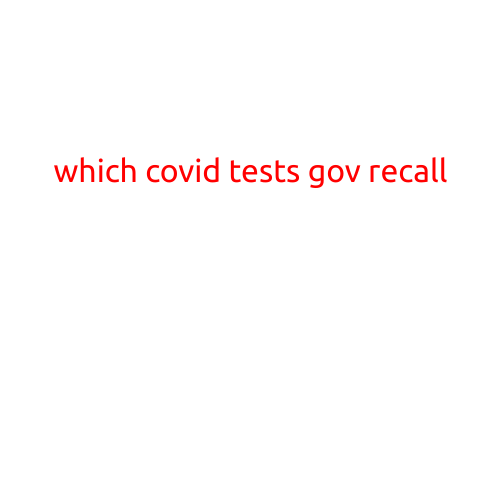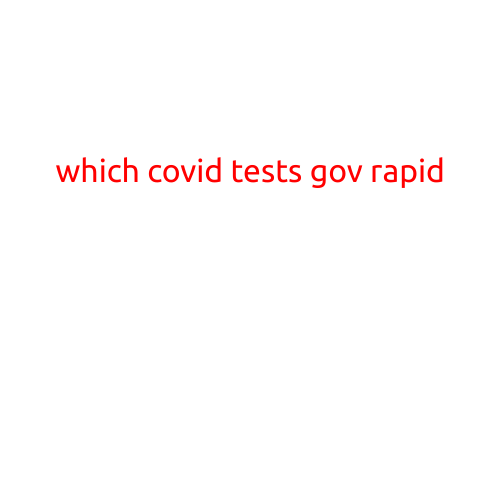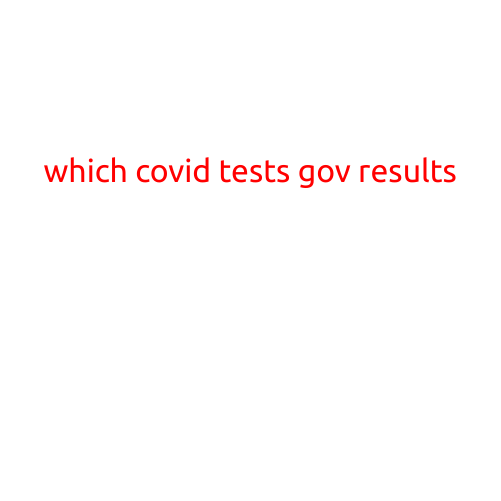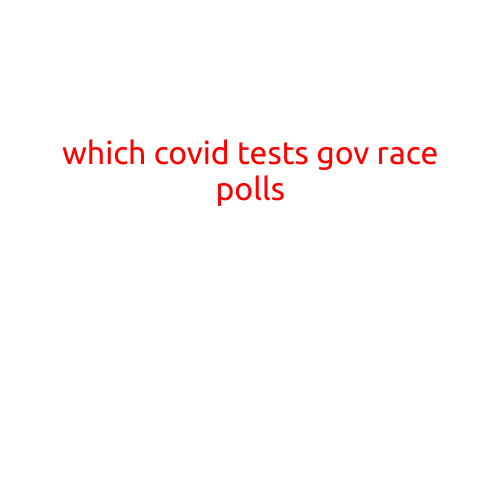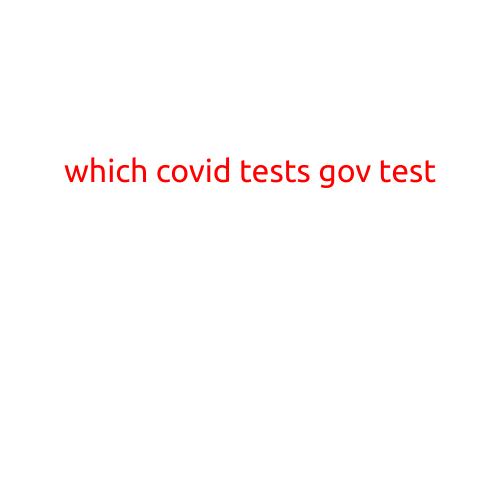
Which COVID-19 Tests Does the Government Test?
As the COVID-19 pandemic continues to spread globally, governments around the world have implemented various measures to contain the virus. One of the key strategies is widespread testing to identify and isolate cases, as well as to track the spread of the virus. But with so many different types of COVID-19 tests available, it can be confusing to know which ones the government uses.
In this article, we’ll break down the different types of COVID-19 tests that governments use, and what they’re used for.
What is a COVID-19 Test?
A COVID-19 test is a medical test used to diagnose an infection with the SARS-CoV-2 virus, which causes COVID-19. There are several types of tests available, each with its own strengths and weaknesses.
Types of COVID-19 Tests:
- RT-PCR (Real-Time Polymerase Chain Reaction) Tests: These tests detect the genetic material of the virus, either RNA or DNA. They are considered the most sensitive and specific type of test, and are used in most hospitals and laboratories.
- Rapid Antigen Tests: These tests detect proteins on the surface of the virus. They are quick and easy to use, but may not be as sensitive as RT-PCR tests. They are often used in point-of-care settings, such as doctor’s offices or urgent care centers.
- Serology Tests: These tests detect antibodies in the blood that are produced in response to a COVID-19 infection. They are used to diagnose past infections, rather than current ones.
- Lateral Flow Tests: These tests detect antigens in the mucus or saliva. They are simple to use and produce results quickly, but may not be as accurate as RT-PCR tests.
Which COVID-19 Tests Does the Government Use?
Governments around the world use a combination of these tests to identify and track COVID-19 cases. The specific tests used can vary depending on the country and the needs of the testing program.
In the United States, for example, the Centers for Disease Control and Prevention (CDC) recommend using RT-PCR tests for diagnostic testing. The CDC also uses rapid antigen tests for point-of-care testing and serology tests to identify past infections.
In the United Kingdom, the National Health Service (NHS) uses a combination of RT-PCR tests and rapid antigen tests for diagnostic testing.
Why are These Tests Important?
The COVID-19 tests used by governments are crucial for several reasons:
- Early Detection: Tests allow for early detection of COVID-19 cases, which enables prompt isolation and treatment, reducing the risk of transmission to others.
- Contact Tracing: Tests help identify close contacts of infected individuals, allowing for targeted public health measures to prevent further transmission.
- Vaccination Efforts: Tests help track the effectiveness of COVID-19 vaccines and inform vaccine distribution strategies.
- Research: Tests are essential for understanding the spread and transmission of COVID-19, which informs public health policy and strategy.
Conclusion:
In conclusion, the government uses a combination of RT-PCR tests, rapid antigen tests, serology tests, and lateral flow tests to diagnose and track COVID-19 cases. The specific tests used can vary depending on the country and the needs of the testing program. It’s essential to understand the different types of tests and their uses to appreciate the importance of testing in the fight against COVID-19.
